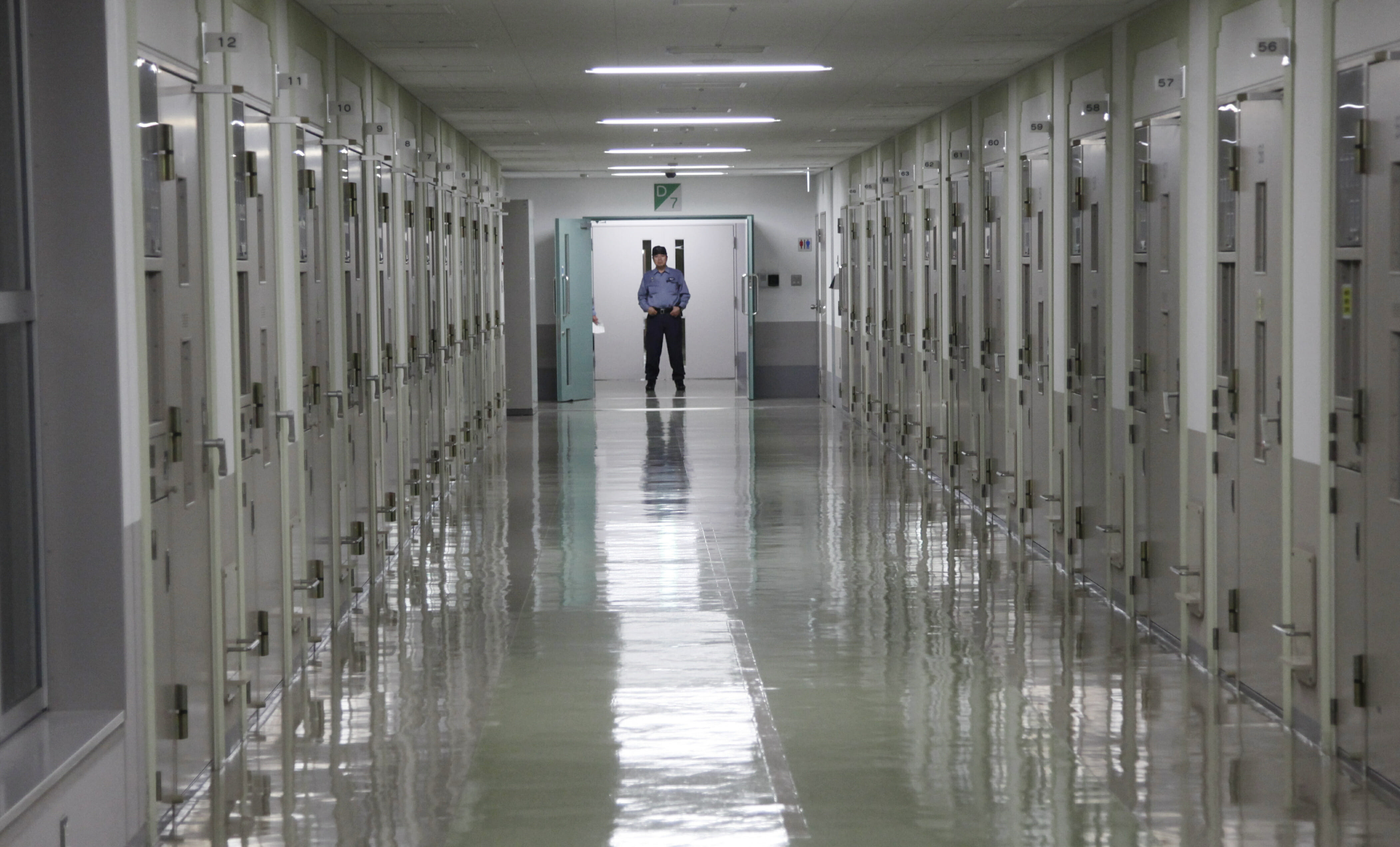
Japan's bare detention center holds many without convictions
TOKYO (AP) — With its bare cells, the Tokyo Detention House looks much like a high-security prison, but most of those who get incarcerated here, including former Nissan Chairman Carlos Ghosn, have not been convicted of any crime.
Japan’s system of refusing bail while suspects await trial, often for months, has drawn international criticism as “hostage justice.”
Foreign media got a rare tour of the austere, drab but orderly facility on Monday, but only of floors without inmates.
Each solitary cell has only a toilet, folded bedding, a shelf and a sink. A window looks out into a bit of sky. Simple meals of rice and soup with a tiny portion of meat or fish are served from a sliding window.
Ghosn, who spent 130 days at the facility over two separate detention periods, says he is innocent of financial misconduct allegations.
He is out on bail, but 1,216 of the 1,758 current inmates have not been convicted and are awaiting trial.
The solitary cells measure 7.5 square meters (81 square feet). Monday’s tour also included a small concrete exercise area, covered with fencing, where inmates can go just 30 minutes a day.
There is also a small store where visitors and inmates can buy snacks like canned fruit and cookies.
Many nations have harsh detention conditions. In Thailand, for example, suspects can be held in chains as they await trial. Detentions can become long in the U.S., especially for people suspected of serious crimes such as terrorism. But generally, a person is presumed innocent, has the right to have an attorney present and is freed within 72 hours if there is no charge.
Suspects in Japan are routinely questioned by prosecutors without a lawyer present and can be held up to 23 days per possible charge without possibility of bail. Prosecutors can add charges to prolong the detention.
The interrogation rooms, where prosecutors grill the suspects, were not shown during Monday’s tour.
There are no TV sets. Inmates listen to the daytime radio news in the evening. Bathing is allowed three times a week in the summer, and twice in the winter. Daily schedules are regimented, starting at 7 a.m., followed by roll call. Bed time is 9 p.m.
Warden Shigeru Takenaka acknowledged there was room for improvement, but stressed public opinion would not allow a fancy lifestyle.
The extensive measures to prevent suicides were telling.
All corners in the cells, such as shelves, are rounded, faucets in sinks turn on and off with a button, and hooks slide off easily so no rope can be hung.
“The three big accidents in Japanese prisons are fires, escapes and suicides,” Takenaka said.
He did not know how many suicide attempts had occurred at his facility, but noted proudly that a guard was recently given a special award for preventing an attempt.
The social ostracism that follows in conformist Japan for those suspected of a crime, and their families, means few people speak out.
Those who do say they felt utterly hopeless at the Tokyo Detention House.
Yuji Hosono, a former representative partner at auditing company KPMG Japan, who was detained for 190 days on allegations he window-dressed the financial records of a company he audited, said he felt it would never end.
But he continued to assert his innocence, clinging to the idea that it was “being human,” he said in a recent interview. Hosono was eventually convicted after taking his six-year legal battle to the Supreme Court.
He said some workers at the Tokyo Detention House were nice and whispered to him as he headed to the prosecutors’ interrogation, “Hang in there.”
Foreigners make up 14% of those at the detention house, about a third of them from China, followed by Vietnam and South Korea. Americans make up 4% of the foreign inmates.
By type of offense, the most common is theft, at about a fifth of the allegations, followed by stimulant drug use, fraud and robbery.
Takenaka stressed that, unlike U.S. prisons, where violence might be common, his inmates were safe.
“They don’t have to defend themselves as in the West. They are protected,” he told reporters. “I believe conditions are more than adequate.”
___
Follow Yuri Kageyama on Twitter https://twitter.com/yurikageyama
On Instagram https://www.instagram.com/yurikageyama/?hl=en
The Western Journal has not reviewed this Associated Press story prior to publication. Therefore, it may contain editorial bias or may in some other way not meet our normal editorial standards. It is provided to our readers as a service from The Western Journal.
Truth and Accuracy
We are committed to truth and accuracy in all of our journalism. Read our editorial standards.
Advertise with The Western Journal and reach millions of highly engaged readers, while supporting our work. Advertise Today.












